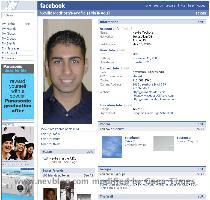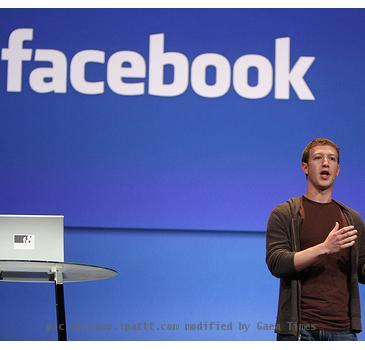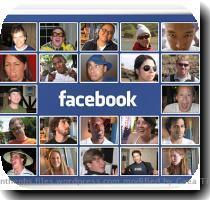David Kirkpatrick’s ‘The Facebook Effect’ a detailed look at website’s origins, impact
By Rachel Metz, APMonday, June 7, 2010
‘The Facebook Effect’ shows site’s origins, impact
“The Facebook Effect: The Inside Story of the Company That Is Connecting the World” (Simon & Schuster, 372 pages, $26), by David Kirkpatrick: Many of us use Facebook nearly every day — some of us multiple times a day — without giving much thought to how the world’s most popular social network came to be.
As it turns out, the story is fascinating, and somewhat complicated. Fortunately, journalist David Kirkpatrick is an able guide, taking readers on a mostly swift tour of the company that started as “TheFacebook” in founder Mark Zuckerberg’s Harvard dorm room back in 2004 and has since mushroomed into a global company connecting a community that now approaches 500 million users.
“The Facebook Effect” opens not with Zuckerberg but with the tale of Oscar Morales, a civil engineer from Barranquilla, Colombia, who in 2008 formed a Facebook group protesting the Revolutionary Armed Forces of Colombia. The Facebook activity quickly inspired massive, real-life protests against the leftist rebels the U.S. State Department calls a terrorist group. Though the story may sound a bit dramatic to the average Facebook user, it helps Kirkpatrick make an important point even before delving into the main narrative: In just a few years, Facebook has had a huge impact on people and institutions around the world, fundamentally changing how we communicate.
From there, Kirkpatrick backtracks to Zuckerberg, circa September 2003, when the then-sophomore installed an 8-foot whiteboard — “the geek’s consummate brainstorming tool,” as Kirkpatrick puts it — in the hallway of his four-student suite.
At the time, Zuckerberg was experimenting with several online projects: Course Match, a way to let students choose classes according to who was already signed up for them; and Facemash, which let people compare two people and decide who was more attractive. The winner would then be compared to increasingly more attractive people.
These programs got some attention — and criticism — at Harvard, but it was in early 2004 that Zuckerberg really lit a fire by launching TheFacebook. According to Kirkpatrick, Harvard had said it would build something like that itself, by stitching together the different “facebooks” that houses at Harvard printed with photos of their students. But since the school hadn’t gotten around to it, Zuckerberg did it himself.
As Kirkpatrick recounts, the website quickly spread throughout Harvard’s student body, and then Zuckerberg and sometimes-forgotten co-founders Dustin Moskovitz, Chris Hughes and Eduardo Saverin feverishly rolled it out at other schools. In 2006, it was expanded beyond universities and high schools to the general population.
Kirkpatrick’s telling of the early days of Facebook is exciting, packed with details like an early offer for the site ($10 million from an unknown financier four months after its launch) and a cringe-inducing description of the broken glass in the pool and zip line above it at the first house Zuckerberg rented in Palo Alto, Calif., in the summer of 2004.
Kirkpatrick, a longtime reporter for Fortune magazine, isn’t always the most spellbinding storyteller — “The Facebook Effect” loses steam in the last 100 pages, and the immense number of interview subjects can be overwhelming and confusing at times — but his reporting skills are impressive.
The book is packed with interviews from all the key players, including Zuckerberg and Moskovitz. Kirkpatrick’s subjects open up about everything from Zuckerberg’s personality quirks to Facebook’s dealings with investors including Microsoft Corp. and billionaire Li Ka-shing. You get the impression that all, including Zuckerberg, are earnestly trying to be as transparent as the social network they’ve built.
Zuckerberg, 26, is, of course, both the face of Facebook and of “The Facebook Effect.” Through Kirkpatrick’s eyes, he comes across as sympathetic, incredibly smart and committed both to getting users to share their lives openly on Facebook and protecting their privacy — a contrast from the Zuckerberg that has been portrayed recently in the media as being more cavalier about privacy.
Kirkpatrick doesn’t shy away from conflict, though, detailing Facebook users’ often outraged reactions to changes on the site, as well as a lawsuit (settled in 2008) in which three former classmates accused Zuckerberg of hijacking the idea for Facebook from another social site he was helping them build.
“The Facebook Effect” is about much more than Zuckerberg’s and Facebook’s growing pains, though: It wants to show over and over again how the social network is rapidly changing the world, helping us be more open but also presenting questions about how much we really want to share.
Tags: Arts And Entertainment, Books And Literature


